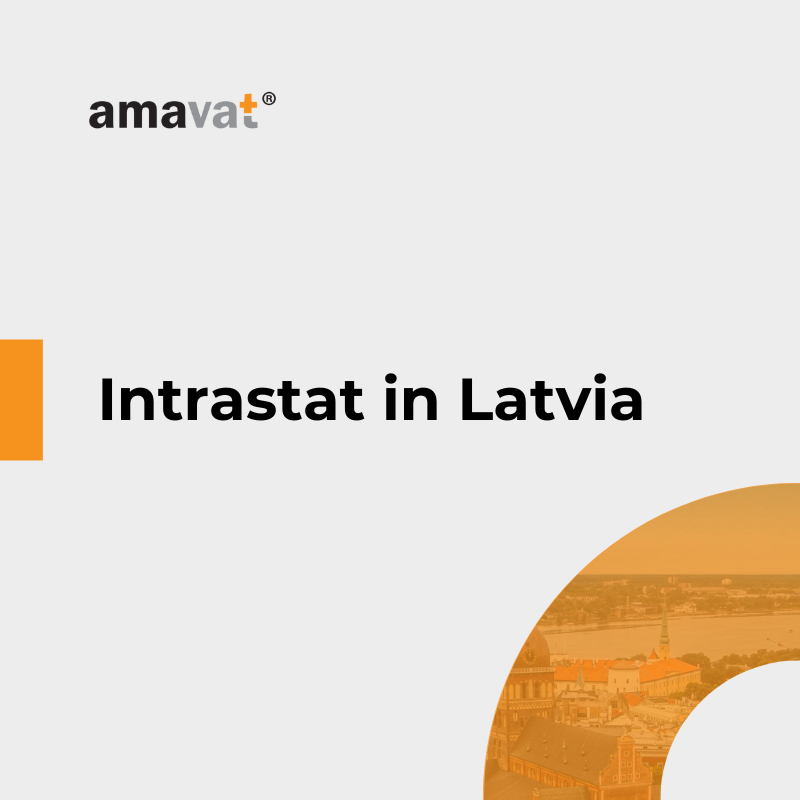New Intrastat thresholds in Latvia

Spis treści
What is Intrastat?
Intrastat declarations are a crucial element of international trade within the European Union. Through a data collection system covering goods moving between member states, it is possible to track and analyze trade dynamics in this area. In Latvia, the responsibility for submitting these declarations lies with the Intrastat Authorities, namely the Central Statistical Bureau. This information is essential for monitoring the flow of goods and analyzing trade trends.
Intrastat thresholds in Latvia
According to the new regulations introduced under the European Parliament Regulation (EU) 2019/2152, Intrastat thresholds in Latvia have been raised. As of January 1, 2024, the new Intrastat thresholds in Latvia are as follows:
Import value threshold
Basic: €350,000 (an increase from the previous €330,000)
Detailed: €5 million
Export value threshold
Basic: €200,000
Detailed: €7 million
Methods of submitting Intrastat declarations
The methods of submitting Intrastat declarations have been adjusted to the needs and capabilities of modern entrepreneurs, ensuring convenience and efficiency in the process of reporting trade data. Entrepreneurs have two main options: submitting declarations in paper form or electronically. Electronically, declarations can be submitted through the e-Pārskats platform (https://e.csb.gov.lv), but appropriate access codes are required.
Deadline for submitting Intrastat declarations
Intrastat declarations must be submitted monthly and are required by the 10th day of the month following the reporting period. It is worth noting that if the deadline for submitting declarations falls on a weekend or holiday, regulations provide for its extension to the next working day. If the value of shipments exceeds the new thresholds established in a given territory in a given month, entrepreneurs are required to start submitting Intrastat declarations from that month.
Corrective declaration
If an entrepreneur identifies any errors in the reported data, they can submit a corrective declaration. The procedure for submitting a corrective declaration can be done in several ways, depending on the preference and convenience of the entrepreneur. One option is to send a letter to the Central Statistical Bureau containing details about the entrepreneur, the relevant period, and information about any changes that need to be made to the declaration. This letter should accurately describe all corrections to ensure the accuracy and completeness of the data.
Alternatively, an entrepreneur may decide to independently submit a corrected Intrastat declaration. This can be done both electronically and traditionally, by submitting a corrected paper form.
Zero declaration
If an entrepreneur is required to regularly submit monthly Intrastat declarations, they must remember to submit zero declarations for months in which no intra-Community supplies or acquisitions occurred.
Consequences of non-compliance with Intrastat regulations
It is important to be aware of the serious consequences that may result from non-compliance with Intrastat system regulations. Non-compliance with these regulations may lead to administrative consequences that can significantly affect the company.
One possible sanction for breaching statutory obligations is the imposition of an administrative fine. A warning or a financial penalty of up to €700 may be imposed for failure to submit statistical data or for incorrect reporting. It is worth noting that the amount of the penalty may depend on the severity of the violation and the decisions of the authorities responsible for enforcing the regulations.
VAT rates in Latvia
Latvia has four VAT rates in place. The standard rate is 21% and applies to most goods and services. There are also three reduced rates: 12%, 5%, and 0%. The 12% rate applies to, among other things, pharmaceutical products, newspapers and magazines, and hotel services. The 5% rate applies to locally produced food, such as vegetables and fruits. The 0% rate is mainly applied to intra-Community and international transport.
Summary
Understanding the principles of Intrastat in Latvia is crucial for e-commerce entrepreneurs engaging in trade with the country. Strict compliance with thresholds and declaration deadlines, as well as accurate completion of documents, can help avoid penalties and other negative consequences associated with non-compliance. Therefore, it is worthwhile to stay regularly informed about the applicable regulations and to adjust business operations to the requirements of the Intrastat system in Latvia. If you need support in this area, feel free to contact us – amavat®.





